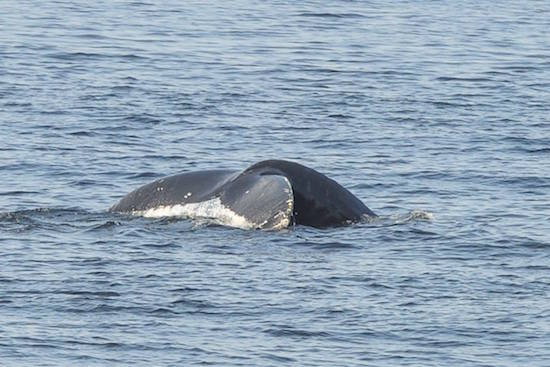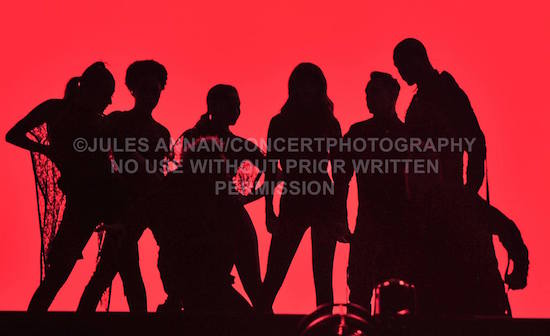When we arrive in Canada we almost don’t arrive in Canada. We’re not even through passport control at Montreal and it’s all starting to feel very Tom Hanks; as though this airport might actually be home for the foreseeable. From behind her desk, the lady with the stamp that says I’m an “okay guy” by her has taken an immediate dislike to three members of our four-member party. She wants to know how we know each other and “We just met, really” isn’t going to cut it apparently.
C’est la vie, though, because when she’s done scrutinising the landing cards of my colleagues and asking them exactly what they’re planning on doing in Canada – and by this point, “We’re old friends who have come specifically to see Selena Gomez” seems to have developed into the narrative – she doesn’t seem to have any objection to me whatsoever. I’ve even put that I’m here for work on my landing card because I wasn’t really listening about five minutes ago. She doesn’t care.
One of us is stopped again for a full bag search courtesy of our new friend, but I’m walking toward the kind of small plane I associate with certain death and asking myself: “Really, if it came down to it, would you take the glove or the propeller?”
But it’s too close to call.
There was a half-truth in our Selena Gomez bit, anyway. We’re in Montreal because we’re moving on to Québec City for the tenth instalment of Festival d’été de Québec – which is not only legitimately gargantuan in scale, but also legitimately features a performance (and whatever else it is or isn’t, it’s definitely a performance) by Selena Gomez.
There’s a lot to take away from a festival like FEQ: plenty to be absorbed musically across its 11 days and myriad stages – a whole sonic life from the most powerful Dad Blues (see: Whisky Legs) to pop in its purest form (see: Alessia Cara). But, more than that, there’s a kind of generosity of spirit that allows for an exploration of something beyond the festival thunderdome.
“Destination Festival” is archaic language…
You see it everywhere. Any non-UK festival that’s looking for UK custom will sandwich “destination festival” somewhere in the opening paragraph of its official press release as though somehow Portmeirion or even Victoria Park are places you’d only ever really pass through. It’s nonsense, of course: at the very best it’s the most naked marketing with a faint whiff of exoticism about it, and at worst it translates roughly as “don’t worry, you won’t have to meet any local people”.
In this vein in particular, Canada’s Festival d’été de Québec is a breath of fresh mountain air (punctuated with deep pockets of intense weed smell): one of very few festivals that takes its local audience as a first priority but never makes us feel like outsiders even when proffering the rustiest of French. Festival wristbands not only last for the entire 11 days of music – procured for a measly $100 Canadian – but are transferable between friends. (Some of the stages don’t even require a wristband and some of the ones that do you can happily watch from the street.) With our forthcoming withdrawal from the European Union, watching uninhibited festival-goers flit between stages at their own stages is a pleasant reminder for me of the joy that freedom of movement can bring; of what we have to give and to take from this kind of painless transition through the world.
“City Festival” sort of makes sense, though…
Okay, so “destination” is out, but “city” readies itself as the usurper in the event of its death. City festivals, after all, are physically (and subsequently spiritually) genuinely different to the herd mentality that naturally occurs at those events located in treacherously muddy fields. Like Airwaves in Reykjavík, but unlike other city festivals, FEQ not only never threatens to suck a rubber boot straight off of your foot never to be seen again, but also allows – even encourages – for an expanded experience: if the drinks are too expensive on site (drinks are always too expensive on site), then just leave and go to a bar; if you’re tired of looking at the backs of people’s heads, then take in some architecture that seems to occupy an aesthetic middle ground between historic Brittany and New Orleans.
What’s more, at FEQ things don’t even really kick off until the evening. And so, the options present themselves thusly: “spend the daylight hours idling/festering in your hotel room” – don’t do this, I try and I spend $40 on a “not very good” chicken sandwich – or, “leave the city for a few hours and have a crack at seeing something pretty spectacular even by bus.” The latter not only technically makes it a provincial festival rather than a city one, but also allows for confirmation of the following…
Whale watching sounds touristique, but whales are fucking cool and I’ll fight you if you tell me otherwise…
Traveling through the countryside just out of Québec City, the scenery is positively Appalachian – rolling mountains, waterfalls, nestled houses and lakes among them – punctuated only by the occasional farm or, right now, by the fucking enormous impact crater we’ve just been told we’re driving through of which “punctuated” seems not quite heavy duty enough. Right here, the entire landscaped has been punctured and we’re cruising through it on a bus all casual like it’s nothing at all. But it’s something. The kind of great leveler that stays and quietly haunts your mind for some weeks after the experience and throbs in the front of your skull for the first few hours. Naturally, to alleviate the pain of the numinous, we’re granted a short stay at the retail end of a cheese factory. Coffee and ice cream are known to be great spiritual healers.
Back to that thinly-veiled threat I left on the table up there: allow me to elaborate in case right now you’re thinking “hey, he’s not a tall guy, maybe I’ll go for option two, could he really do me any damage?” A six-hour return bus ride through unequivocally beautiful scenery is a price – if you can call it that – well worth paying in exchange for the sheer pleasure of looking at giant mammals do their thing with no regard whatsoever for your comparably insect-like body or the big boat (that serves beer and lets you lay down on the deck if you want) bobbing away in front of it.

It’s not all about star power but star power has its moments…
In its ten years to date, Festival d’été de Québec has managed to secure some of the biggest names in music, spanning genres and generations with the ease of the most confident manspreader – from the Rolling Stones and Arcade Fire to this year’s headline slots from Selena Gomez and Ice Cube – but also does a great job of picking up the midweight acts from the global stage en masse. Having those whacking great names on your bill is probably a great feeling, like when Donald Trump talks about having built “great structures”, but having Half Moon run sit cordially alongside Flo Rida, AlunaGeorge within a hair’s breadth of Bryan Ferry, and Travis Scott cosying up to Rammstein is an indicator of a desire to do more than just summit the festival world and plant Québec City’s flag. It’s a display of humility sorely lacking at a great majority of festivals of a certain kind, one that exposes exactly what sits at FEQ’s core: a warm (and it is warm right now in Québec, but also impossible to explain to anyone back home I’m getting worse sunburn than at in Barcelona a month ago) welcome of inclusivity regardless of age or genre preference.
That being said…
FEQ highlights the power of pop…
Selena Gomez (or whoever is in charge of her music) is playing Calvin Harris and Rihanna’s – and Taylor Swift’s! – ‘This is What You Came For’ before her set. It’s a huge tune and righteously – with the fury of people uninhibited by knowing anyone else in the crowd – we are dancing. But it’s also a bold and somewhat confusing choice because: Selena Gomez has more outfits than Björk and she’s determined to show you literally all of them before the set is over. Selena Gomez has some great songs and some terrible songs. Selena Gomez can’t actually seem to sing either sort. Selena Gomez’s set is a quasi-Lynchian nightmare: Selena Gomez is Coop overpowered by Bob without any of the vitriol. Selena Gomez is Laura Palmer’s blue lips without any of the decomposition.
But most of all, Selena Gomez is outshone by those who would and probably should take her place at the top of the pile: by Cœur de pirate, but most notably by Alessia Cara who seems to understand better than anyone on the bill the grand unifying power of pop music – that it can chime with our feelings of isolation and our insecurities without wallowing in them; that it can reach for the highest possible points with unbounded exuberance without ignoring the gasping depths or being afraid of failing to reach them. That pop music is brilliant.
Festival d’été de Québec takes place annually in Québec City, Canada


